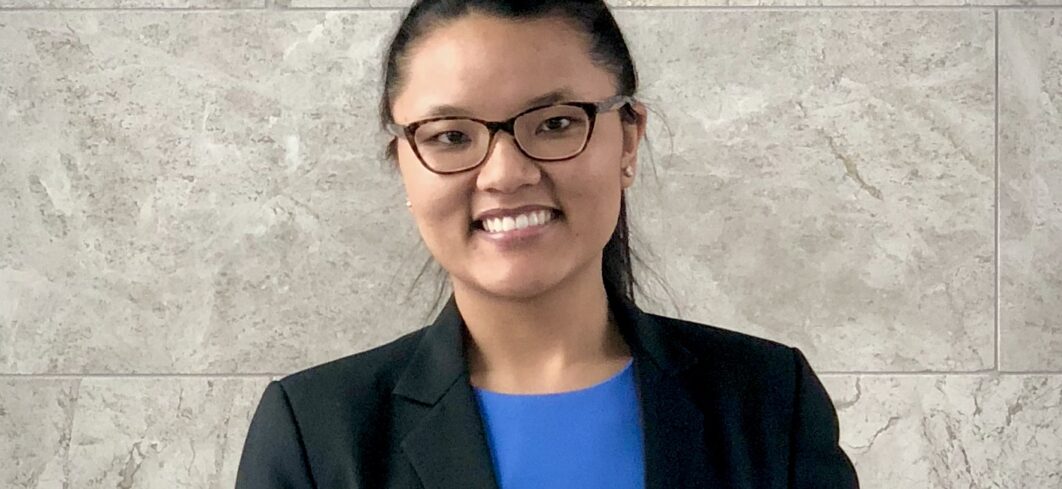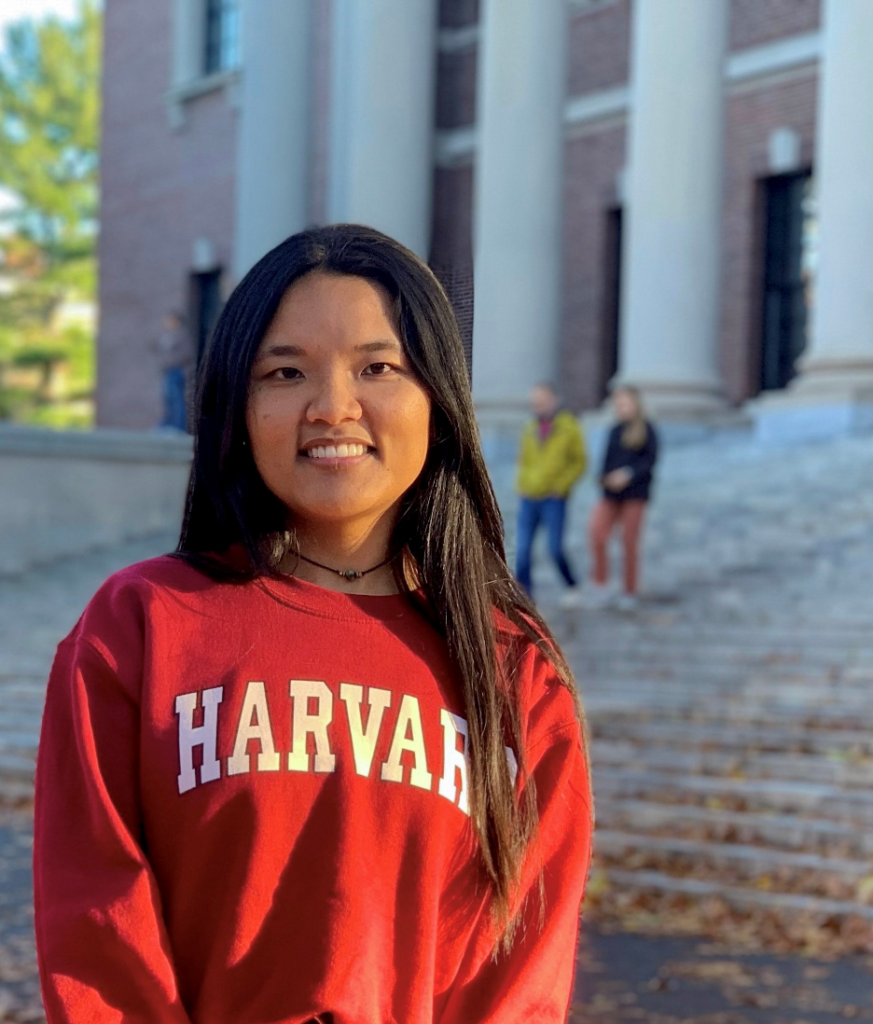Caldwell University
February 8, 2022
A Science Alum’s Trek–From Mount Everest to Caldwell to Harvard

Ngima Sherpa ’19 credits the foundation she received in the School of Natural Sciences at Caldwell University with opening doors for her to enter graduate school at Harvard University.
As a new student in the Cancer Biology Program in the Department of Biological and Biomedical Sciences at Harvard, and a student researcher in the lab at Massachusetts General Hospital, Sherpa looks back at her time at Caldwell and is grateful for the many ways the professors prepared her for her doctoral degree academic journey.
While majoring in biology and chemistry as an undergraduate at Caldwell, she took advantage of the opportunities presented to her—engaging in independent research with the mentorship of Natural Sciences professor, Agnes Berki, taking on interesting internships, attending conferences and networking with principal investigators at other universities.
After graduating in December 2019, Sherpa started graduate school at Washington University in St. Louis. “Caldwell really helped me transition to cancer biology at Washington University.” There she worked with a principal investigator on brain cancer research. When she learned that her mentor was leaving for Massachusetts General Hospital, she had some hard decisions to make. She summoned the courage to apply to Harvard so she could continue with the same person on the same research. Getting accepted was “almost too good to be true,” Sherpa says.

From the time she was a little girl, Sherpa was not afraid of stepping out into the unknown.
Growing up near the world’s highest mountain, Mount Everest, Sherpa’s family met people from around the globe who had come to Nepal to climb the famous peaks. Her family was a “mountaineer family,” running a mountaineer business. Her father died when she was six years old, leaving her 28-year-old mother to raise three children on her own. Meeting climbers from different countries, Sherpa got a glimpse of life beyond the mountains—“a life where the distance to school, extreme climate and reduced priority of education did not exclude opportunities for children,” she explains. “Inspired by stories told by tourists of female scientists and doctors, I became driven to pursue formal education.”
By the time she was 11, Sherpa was attending Mount Kailash Boarding School far from home in the capital city of Kathmandu. She wanted to prove to herself and the girls in her village that they could do it. There were challenges, from having to repeat three initial school years because of the difficult transition from a rural environment to an urban school system, to studying for standardized examinations during nearly continuous power outages.
After completing her education through grade 10 at Mount Kailash, Sherpa attended Trinity International College, which is equivalent to grades 11 and 12 in the United States, and became the first person in her family to graduate from high school. She was grateful for Trinity’s excellent faculty, well-equipped infrastructure for science learning, and extracurricular activities. The next step was to pursue science on the college level. “I was very driven to come to the U.S.,” says Sherpa, especially for the practical research opportunities.
She discovered Caldwell University in the common app and applied. When she heard back from Caldwell, she knew it was the right place for her, especially because of the financial assistance. Caldwell’s beautiful campus, welcoming faculty and staff, its proximity to New York City, and many other opportunities influenced her decision. “I was given merit, recognition and a residential scholarship, which helped me complete my undergraduate degree without much financial burden.”
Sherpa looks forward to her academics at Harvard where she will be engaged in brain cancer research. “It is the unknown that drives me there,” she says of brain cancer research. Scientific research, she stresses, is about conducting solid scientific studies for the next generation of thinkers, “to create a base for someone else, a stepping stone.” The journey has already been her own academic Mount Everest climb. As she wrote in her application to Harvard, she wants to use the opportunity to become a successful woman scientist and “inspire children, particularly those in the mountains, to pursue their dream, no matter how arduous the path may be.” ###





